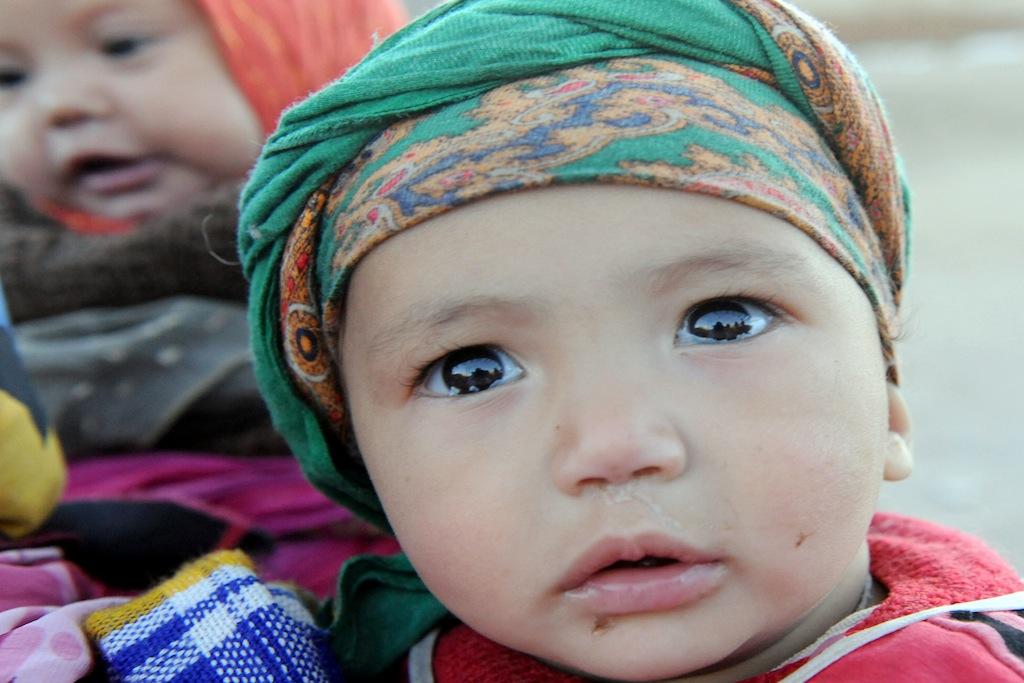Morocco limits international adoptions
Experts says that a moratorium on international adoptions could have lasting negative effects on Morocco’s orphans, many of whom were previously adopted by parents in other countries.
Ibrahim is like a lot of two-year-olds. He eats a big bowl of oatmeal for breakfast, goes to play groups, and “is a lovely, bright child. God has given him the gift of gab,” said his mother, an American named Hadija (not her real name, since she wishes to protect Ibrahim’s identity.)
Two years ago, Hadija, 38, and her American husband, adopted Ibrahim from Morocco and brought him to Qatar.
Today, it would be impossible for them to adopt Ibrahim and raise him outside Morocco, because in September of last year, the Moroccan government imposed a moratorium on international adoptions out of fear that children raised outside the country will lose their religion and national heritage.
When the moratorium was adopted, prospective parents from around the world were caught in the process of adopting Moroccan children, including more than 40 families from Spain that had reportedly moved to Morocco to improve their chances of adopting a child.
Late last month, after lengthy negotiations, Morocco and Spain reached an agreement that would allow Spanish families to adopt Moroccan children and raise them outside Morocco with one condition: Moroccan religious authorities must monitor the children to make sure they are raised as Muslims.
More from GlobalPost: Morocco: Controversy over religious freedom
In a recent blog post, Soeren Kern, a Senior Fellow at a New York-based think tank, the Gatestone Institute, criticized the new Spanish adoption agreement as religious interference, saying it sets a dangerous precedent.
“The requirement, which will be enshrined in Spain's legal code, represents an unprecedented encroachment of Islamic Sharia law within Spanish jurisprudence,” Kern wrote.
But regardless of the agreement between Spain and Morocco, large numbers of children are likely to remain in Moroccan orphanages, at least in part because of the moratorium on adoption.
UNICEF reports that there are more than half a million orphans in Morocco. Most are from single mothers, who face overwhelming social stigma and financial difficulties. According to Asmae Benislame, the founder of Bebes du Maroc, an adoption movement based in the capitol of Rabat, about 24 children are abandoned every day in Morocco. Bebes du Maroc organizes an annual conference that advocates for better orphanage care and lobbies Moroccan politicians to change their minds about international adoption.
“The best place for children is in a family,” said Benislame.
More from GlobalPost: Protests to change rape law roil Morocco
Children who are not adopted into families can suffer severe developmental problems, says Dana Johnson, an American researcher and expert on the effect of orphanages on children. Johnson cites studies showing that a child who spends only six months in an orphanage is smaller, sicker, has a lower IQ and more mental health problems than a similar child living with a family.
“From a freedom point of view, you can have your religion,” Johnson said. “But from a humanitarian point of view, it's absolutely critical that these children live in a home.”
Amanda Mouttaki agrees. An American, Mouttaki met her husband in Morocco, converted to Islam and hoped one day to adopt a Moroccan child. But, because she lives in the United States, that seems unlikely as long as the moratorium is in place. Mouttaki donates frequently to an orphanage in Marrakech and also volunteers at the orphanage whenever she visits Morocco. She wants the Moroccan orphans to know that “there is someone out there that loves them and thinks of them every day.”
For Hadija, the requirement that an adopted Moroccan child be raised as a Muslim, is understandable.
“In our case, we're practicing Muslims and we're raising Ibrahim as Muslim. In that respect, he's not losing his Islamic heritage,” she said.
But Ibrahim is being raised outside Morocco and that would have disqualified him under the new moratorium. The idea that the boy might have remained in a Moroccan orphanage rather than with her is unthinkable, said Hadija.
"When you hold a baby in your arms, all of these instincts that you never knew you have come up,” said Hadija. “I knew he was meant for me."
Lydia Cheng is a student at the University of Tulsa. She spent several months in Morocco in late 2012 on an SIT Study Abroad program and produced this story in association with Round Earth Media, a non-profit that mentors the next generation of international journalists.
Saltana El Jazouli contributed reporting.
Every day, reporters and producers at The World are hard at work bringing you human-centered news from across the globe. But we can’t do it without you. We need your support to ensure we can continue this work for another year.
Make a gift today, and you’ll help us unlock a matching gift of $67,000!
